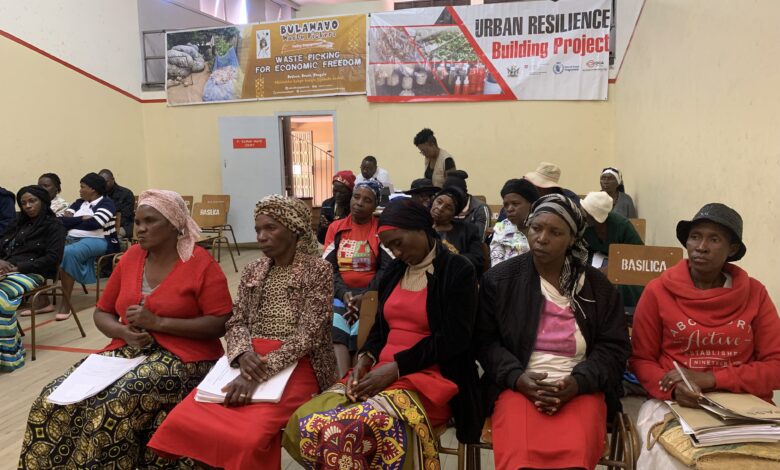Waste Pickers urged to engage councillors for better working conditions

Waste pickers in Bulawayo have been encouraged to engage with their city councillors to advocate for improved working conditions in their sector.
Deputy Mayor, Councilor Edwin Ndlovu, addressed waste pickers at a recent engagement meeting held by the Matabeleland Institute for Human Rights (MIHR).
Councilor Ndlovu emphasised the importance of organisation and communication.
“Waste pickers need to organise themselves and formally engage their councillors,” he said. “This will ensure that councillors are aware of the challenges you face and the solutions you propose.”
Waste pickers highlighted the limited market for their recyclables in Bulawayo.
“There aren’t many companies in Bulawayo that buy our waste,” said a representative from Cowdray Park. “We’re forced to sell to Harare companies, but transportation costs are high, leaving us with little to no profit.”
The representative also called for designated workspaces. “The materials we handle are unsanitary. Designated open spaces would allow us to organize the waste properly and maintain a cleaner working environment.”
Councilor Ndlovu acknowledged their concerns and pointed to existing departments that could offer support.
“The council has a department for small to medium enterprises (SMEs) and a city economic development branch that works directly with people in the informal sector, which includes waste pickers,” he explained. “We recognize the informal sector’s role in job creation, waste management, and economic sustainability. Last year, we made a resolution to support SMEs, and a dedicated department will be established. Including a representative from this department in future discussions would be beneficial.”
“The city economic development branch can also offer assistance,” he added. “I encourage you to build formal structures within your cooperatives to formally submit your input on bylaws. While MIHR is currently providing support, you need to be able to submit your proposals. The more submissions there are, the better the chance of gaining recognition. A single collective submission might only be seen as one voice.”
Councilor Ndlovu concluded by urging waste pickers to connect with their ward councillors. “When you return to your wards, find your councillors and meet with them. Explain your work and the challenges you face. Consider organizing a collective summit. This will allow councillors to gain a better understanding and appreciation of your work, leading to greater support for your services. We need to acknowledge that the formal sector is no longer the dominant force in Zimbabwe’s economy. The informal sector now plays a crucial role.”






